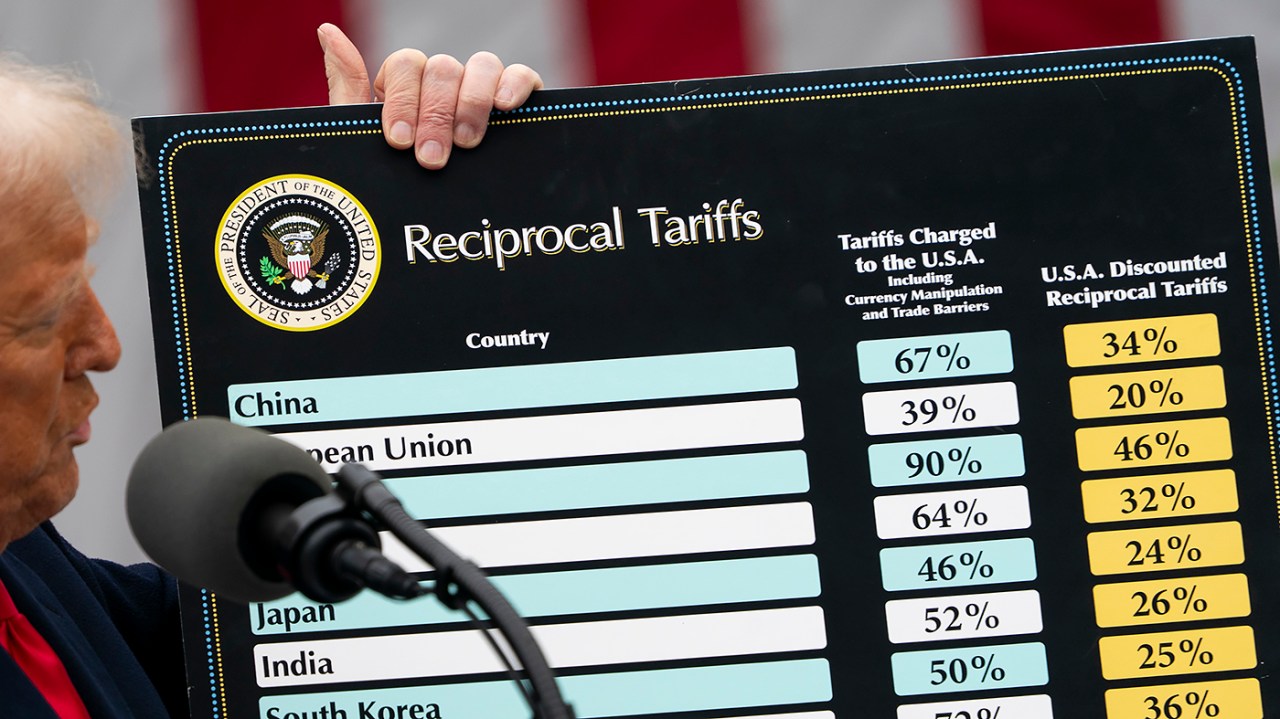U.S. stock futures experienced a sharp decline on Sunday evening as markets signaled an impending sell-off following President Trump’s implementation of significant reciprocal tariffs on trading partners.
By 6 p.m., Dow Jones futures had dropped over 1,700 points, indicating a potentially disastrous day for Wall Street when markets open on Monday morning at 9:30 a.m. The Dow and other markets already endured substantial losses during the previous Thursday and Friday due to Trump’s tariff policies and the anticipated retaliation from other nations. Over those two days, the Dow lost nearly 4,000 points.
CNBC host Jim Cramer warned of a possible “Black Monday” event, referencing the market collapse of 1987, if Trump remains committed to his tariff plans. During that event, the Dow plummeted by 22.6% in a single day. Cramer stated, “If the president doesn’t try to reach out and reward these countries and companies that play by the rules, then the 1987 scenario… the one where we went down three days and then down 22% on Monday, has the most cogency.”
Trump administration officials defended the president’s tariffs amid growing economic anxiety. National Economic Council Director Kevin Hassett, in an interview on ABC’s “This Week,” claimed the tariffs would not significantly impact U.S. consumers. Meanwhile, Treasury Secretary Scott Bessent described the tariffs as a “one-time price adjustment” during an appearance on NBC’s “Meet the Press.”
Trump justified the tariffs, announced on Wednesday and implemented the following day, arguing that other countries have exploited the United States for decades. He accused past administrations from both parties of failing to adequately protect U.S. workers and manufacturers. Despite market fluctuations, Trump suggested investors should take advantage of lower prices.
Sen. Roger Marshall (R-Kan.) expressed support for protecting U.S. farmers and manufacturers while ultimately aiming for “zero tariffs.” Administration officials have sent mixed messages regarding the duration of the tariffs, with some indicating countries are eager to negotiate reductions. Israeli Prime Minister Benjamin Netanyahu, arriving in the Washington area on Sunday evening, is expected to discuss the 17% tariff imposed on Israeli exports to the U.S.
— new from The Hill
